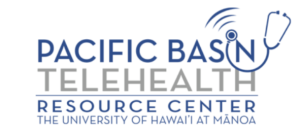Guam Policies and Regulations
Telehealth laws and licensure requirements for Guam
Telehealth Laws
Guam’s “The Telemedicine Act of 2008 (PDF)” outlines the requirements for non-resident physicians before consulting with Guam providers and patients. The law further requires non-resident physicians to be licensed in the United States.
The law states:
A licensed physician who resides outside of Guam within a State, Federal jurisdiction or country is not subject to Guam medical licensure requirements where said licensed physician is providing consultation to a Guam licensed physician through the use of telemedicine technology if:
the non-resident licensed consulting physician operates no clinical practice or office on Guam;
the non-resident licensed consulting physician does not render any final written or otherwise documented final medical opinion concerning the diagnosis or treatment of a patient on Guam directly to the patient; and
the non-resident licensed consulting physician does not render any treatment to any patient on Guam.
The non-resident licensed consulting physician may render care and provide final diagnostic and treatment decisions without an active Guam license if the consultant is to act as a receiving physician for the patient in the consultant’s jurisdiction.
The non-resident licensed consulting physician may render care and provide diagnostic and treatment recommendations without an active Guam license if the consulting physician acts jointly and directly with the local attending physician of the patient who is the subject of the consultation.
The non-resident licensed consulting physician rendering consultation shall abide by all local and federal laws with regard to patient confidentiality.
Licensure Requirements
A non-resident physician who is caring for a patient in Guam via telehealth is not required to have a Guam medical license if the consulting physician works directly with a local attending physician and is required to be licensed in the United States. See specific reference to Telemedicine Act 2008 above.
Contact the Health Professional Licensing/EMS Office
Health Professional Licensing Office (HPLO)
94 Hernan Cortez Avenue
Terlaje Professional Building,
Suite 213,
Hagatna, Guam, 96910
Interstate Medical Licensure Compact
Guam is the first US Territory to join the Interstate Medical Licensure Compact. This offers physicians an expedited pathway to licensure in the states and territories who are part of the compact.
Public Health Emergency (PHE) Status and Waivers
Read the current updates on Guam’s PHE status.
At the Federal level, there were many policy waivers for Medicare that temporarily lifted restrictions such as the patient and provide location, provider type, services and delivery mechanism including lack of enforcement by the Office for Civil Rights for use of non-HIPAA guideline compliant platforms. With the exception of behavioral mental health, most of these waivers remain temporary until the end of the PHE. It remains to be determined what policies will become permanent.
The Cross Cultural Health Care Program (CCHCP) tracks PHE policy waivers for: originating site, provider type, service expansion, audio-only delivery, easing prescribing requirements, easing consent requirements, cross-state licensing, private payer, and miscellaneous. Visit the Federal CCHCP COVID-19 tracker.
